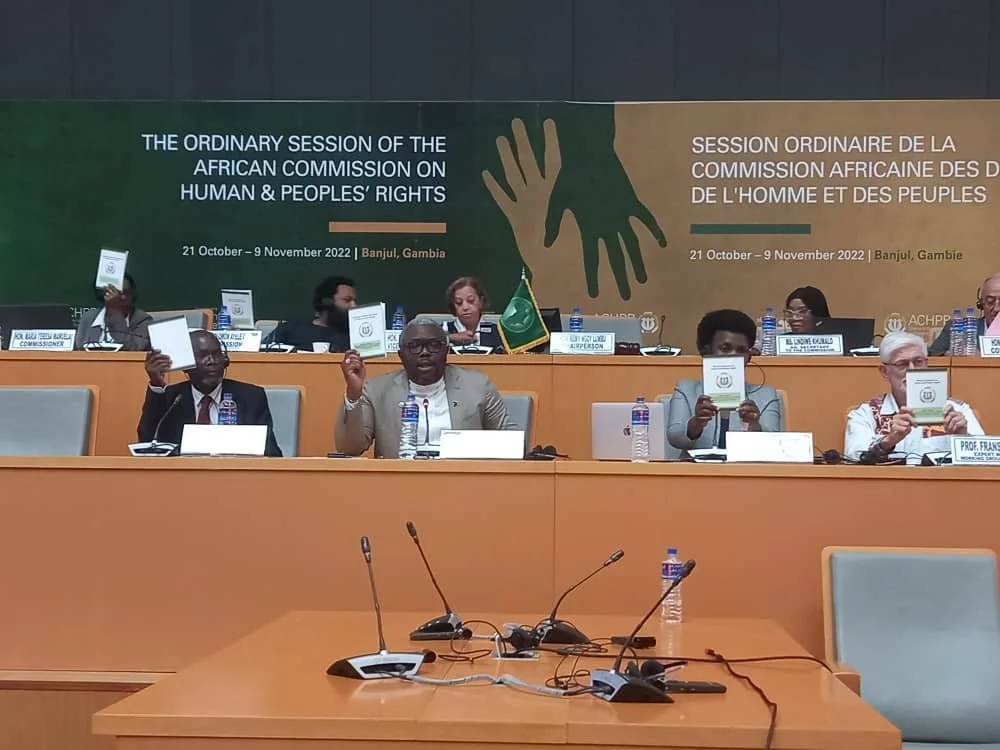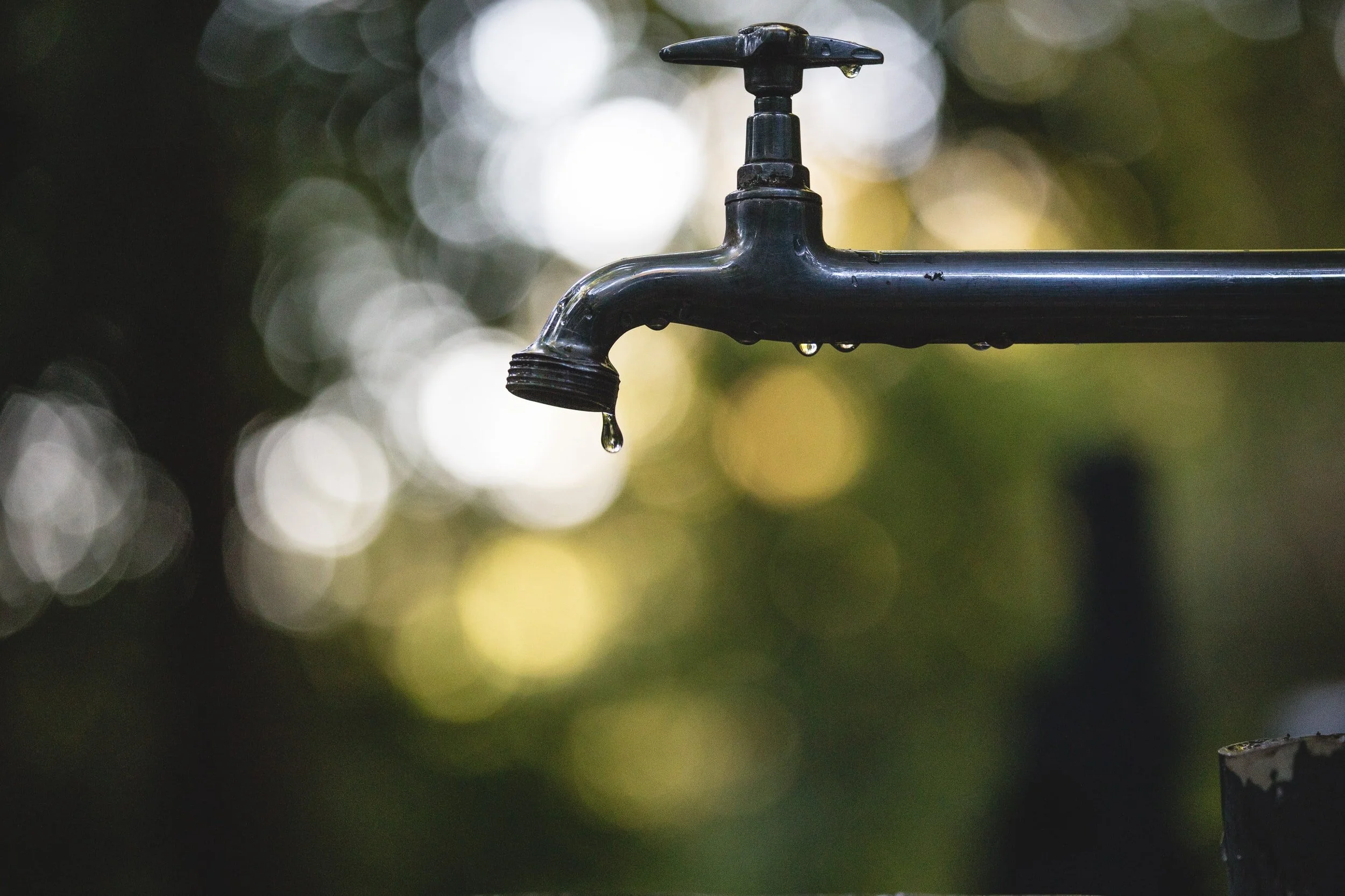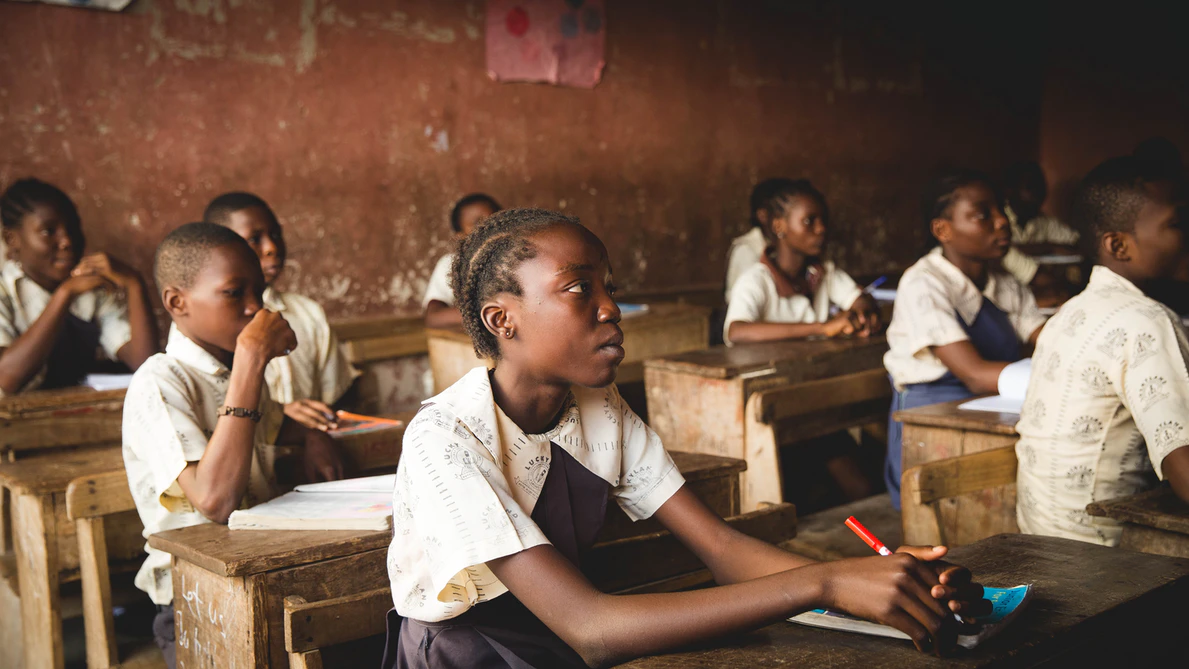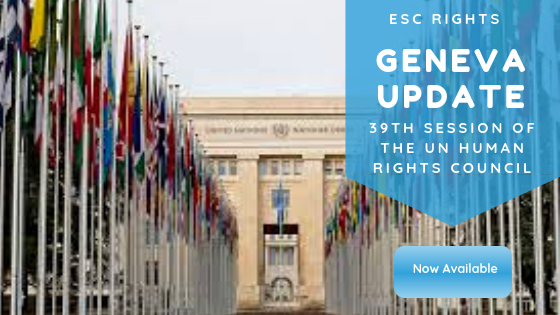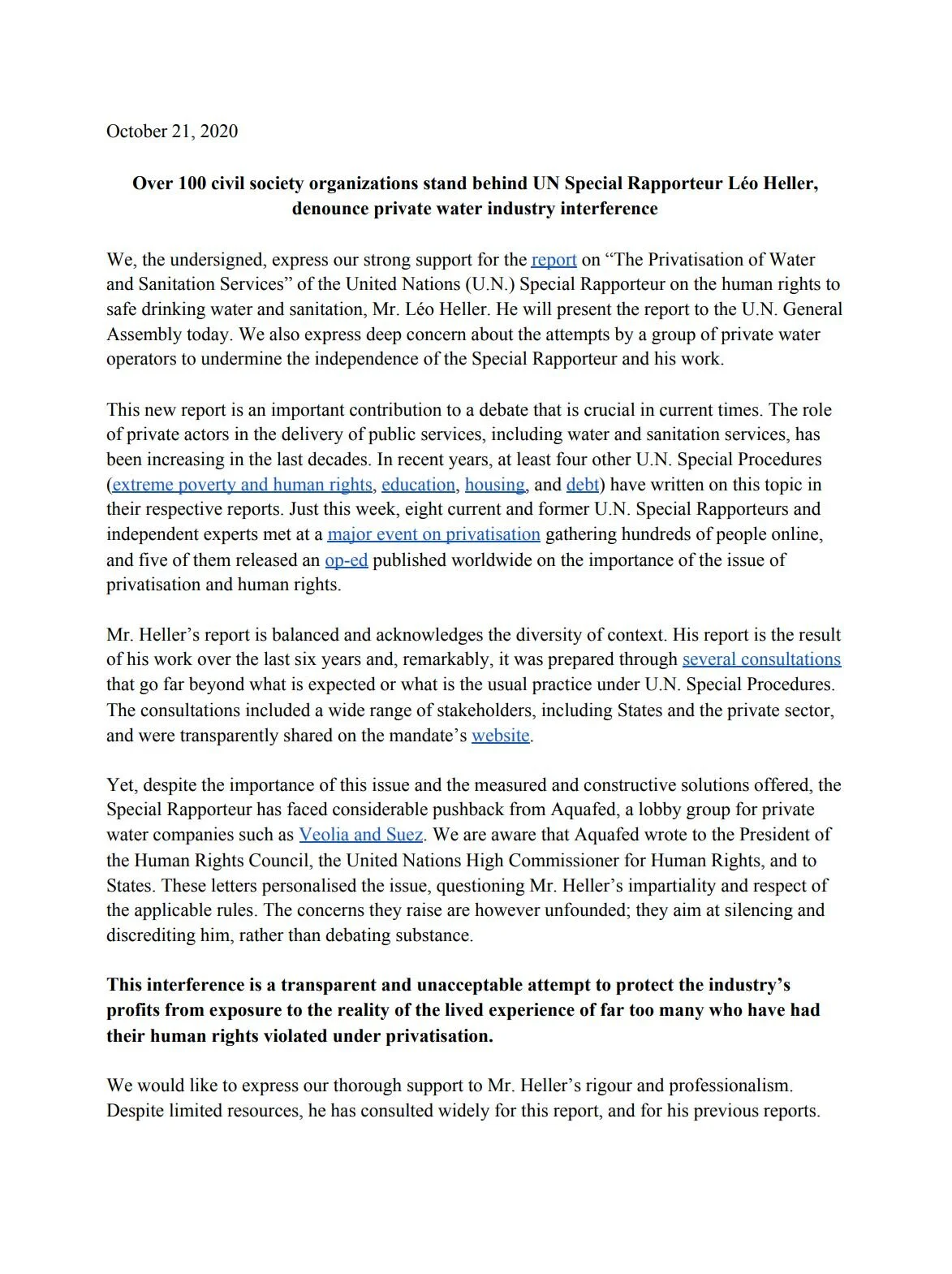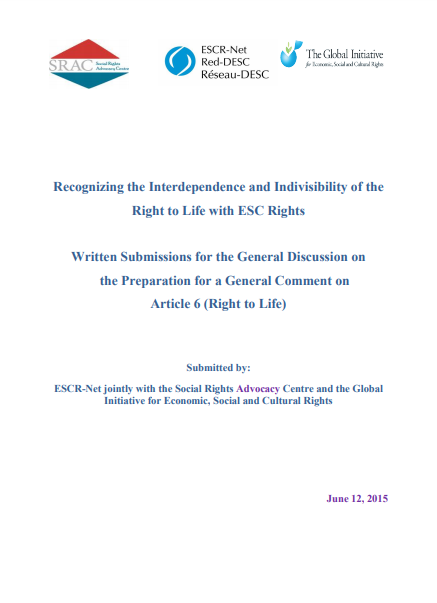Our approach
Issue
Evidence has shown the potential for specific challenges for the realisation of human rights that may arise where the private sector participates in the delivery of social services, including water services. The United Nations (UN) Special Rapporteur on the situation of human rights and fundamental freedoms of indigenous peoples, Rodolfo Stavenhagen, concluded that the privatisation of water was among the factors contributing to the growth of social and economic inequality among indigenous communities.
Our work so far has focused on unpacking the human rights framework applicable to the involvement of private actors in water, building on our experience in education and health.
GI-ESCR had responded to a call for submissions in 2018 by the African Commission on Human and Peoples’ Rights (ACHPR) for input on the Draft Guidelines on the Rights to Water in Africa. The inclusion of GI-ESCR's points in the final Guidelines on the Right to Water published in July 2020 is a key achievement for the defence of water as a public good.
+read more
In the submission, GI-ESCR drew from concepts in the Abidjan Principles on the Right to Education to provide detailed advice on the provisions addressing the delegation of water services provision to private entities, highlighting the State responsibility even where services are provided by private actors, the public service obligations on private actors providing water services; the importance of strengthening regulations, monitoring and oversight capacity and ensuring and the participatory processes prior to the delegation of water services provision to private entities.


